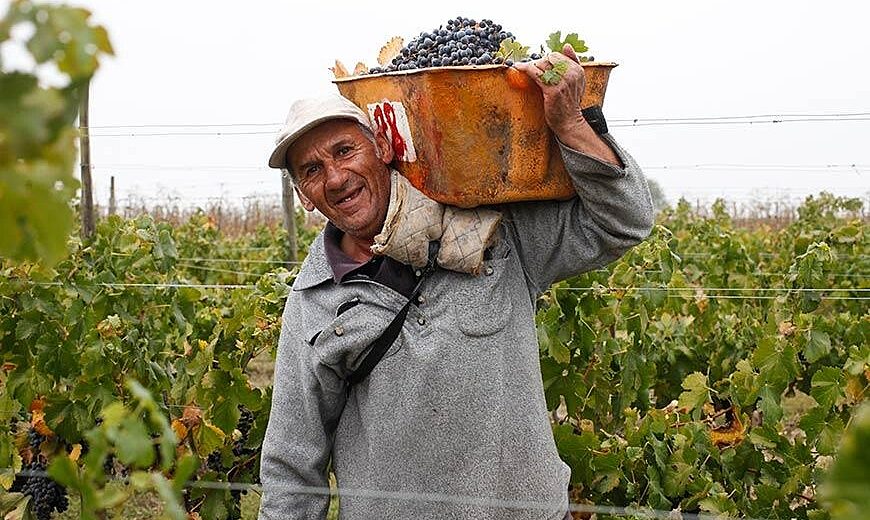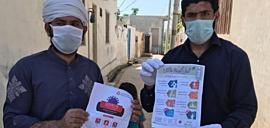Wine and wine grapes
Wine has been produced for many thousands of years, and in many regions. Whether it’s used to complement a meal or to toast a success, wine is a special drink around the world. Fairtrade offers wine growers and workers in developing countries a chance to improve their conditions.

Image © CLAC
Wine enthusiasts know that local soil and climactic conditions play a key role in producing the eventual taste of the wine. You can now enjoy flavourful Fairtrade wines crafted by over 50 growers and vineyards across Argentina, Chile, Lebanon and South Africa.
Choosing Fairtrade wine makes a difference
Fairtrade first certified wine in 2003. Our involvement in this sector stemmed from concern around the labour conditions of workers on large wine estates, as well as the difficulty faced by smallholder wine growers in developing countries to earn a decent living.
Growing wine (grapes) is a challenging business: it relies on seasonal work for harvesting grapes, but also requires specialized equipment to produce wine. Workers and small-scale farmers have often fallen short of earning a stable living from wine production, lacking the spare money to invest in improvements that cater to shifting trends and tastes in the industry.
Specific problems also confronted some origins. In South Africa, for instance, apartheid’s legacy of racial segregation continued to haunt the wine sector, with black workers often performing the more laborious tasks at wine estates. In Lebanon, smallholders who struggled to make a living from farming sometimes turned to illicit crops, which the government would then eradicate – for some, switching to wine production offered hope of a new start.
For many farmers and workers, involvement in Fairtrade has helped to improve their situations, whether through the targeted investment of Fairtrade revenues toward education and improved facilities, or the encouragement to form cooperatives that gain economies of scale in this global industry.
We drink wine for enjoyment – for its wonderful flavours and aromas, that warm glow… When you buy Fairtrade wine, you help to ensure that workers and small-scale growers behind those wines can get a fair deal – we can all toast to that! Cheers!
Looking for Fairtrade Products?
Fairtrade products are widely available. The blue countries and territories on the map below have Fairtrade organizations that promote Fairtrade products. Their websites often include a product finder to show you the full variety of Fairtrade products near you. Even if there isn't a Fairtrade organization where you live, Fairtrade products may still be available – look for our familiar marks on products!
Related news
-

Fairtrade producers supporting their communities during COVID-19
From food parcels and awareness raising, to sanitization of public spaces. In spite of uncertainties, farmers and workers worldwide are helping their communities be stronger ...
-

Building Bridges in Lebanon
Charbel El Fakhri is Chair of Fairtrade Africa and a wine producer in Lebanon. Here he shares his experiences at the 10th International Fair Trade Towns Conference, recently held ...